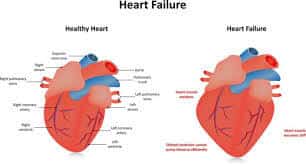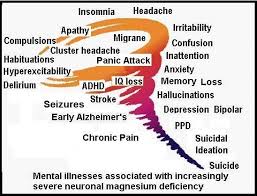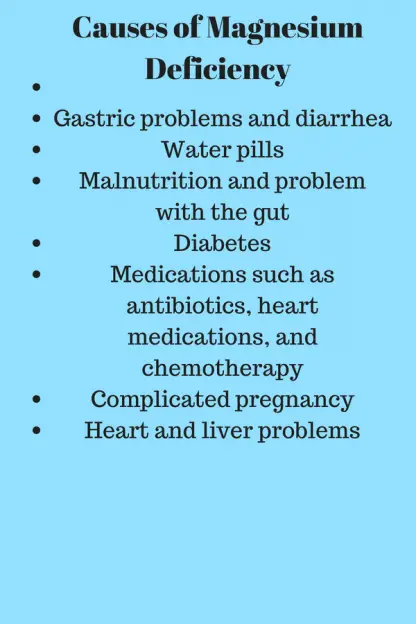Congestive heart failure is on the increase in America. The reasons for the increase are not clear.
However, research has shown that magnesium deficiency plays a role in congestive heart failure. It is estimated that 75% of Americans are deficient in magnesium. Magnesium plays a role in the prevention of congestive heart failure (CHF). Cardiovascular Research Magnesium Taurate is rated one of the best for heart function. In this article, I will discuss the congestive heart failure and low magnesium.
Congestive Heart Failure and Low Magnesium
Almost 6 million people have CHF in America. One of out 9 deaths in America is directly or indirectly related to CHF. The majority of people are already diagnosed and on medications. However, the mortality rate remains very high. The cost of treating CHF is estimated to cost around 31 billion dollars a year.
It appears, despite individuals compliance with their medications and doctors orders, CHF continues to be a devastating disease with no cure in sight. Therefore, there must be other variables that are causing heart failure.
The most common mineral deficiencies in heart failure are low magnesium, low potassium, and sodium. Magnesium and potassium are two very important minerals that the heart absolutely need to function.
These deficiencies are directly related to inadequate nutrient intake or medication side effects. The majority of heart medications deplete the body of needed nutrients, especially diuretics.
Magnesium Deficiency in Congestive Heart Failure
Magnesium deficiency is very common because of the eating habits and lifestyles of people. It is quite difficult to assess the magnesium status of an individual because only 1% of the magnesium in the body is located in the blood.
Therefore, serum magnesium levels in the blood do not reflect the overall status of the body’s magnesium levels. The majority of magnesium is in the bones. The highest percentage of magnesium is used by the left ventricle.
There are many ways to test magnesium levels in the blood. but the easiest way to test is by doing a magnesium RBC level.
When some people ask the doctor to test their “Magnesium RBC” level, often time the doctor does not know what that is.
A magnesium RBC is the level of magnesium that is in the red blood cells. It is a much more accurate level than the regular serum magnesium level.
It the doctor will not order the lab, some states will allow an individual to order their own labs such as Life Extension.
Ten percent of patients admitted to the hospital will have a low magnesium measured by the serum level.
The magnesium levels are most noticeable in the hospital units like the emergency room and the intensive care units. This makes sense because these areas are where the sickest patients are.
Major Causes of Magnesium Deficiency
There are many causes of low magnesium. However, no matter the causes, magnesium deficiency will harm the heart.
- Gastric problems and diarrhea
- Water pills
- Malnutrition and problem with the gut
- Diabetes
- Medications such as antibiotics, heart medications, and chemotherapy
- Complicated pregnancy
- Heart and liver problems
- Be careful not to have too much magnesium or to overdose on magnesium
The major cause of low magnesium in heart failure is the use of diuretics, mainly Lasix. A study was done that showed the patients who have the highest levels of magnesium, has the highest survival rate.
Diuretics are a cornerstone of patients diagnosed with congestive heart failure because of fluid retention.
Why Does Low Magnesium Contribute to Congestive Heart Failure
The electrolyte balance is important, especially in patients with heart failure. Low magnesium has an effect on the entire heart structure. Low magnesium has also been linked to coronary artery disease and cardiomyopathy.
Cardiac Disorders That is Linked to Low Magnesium
- Coronary artery disease
- Congestive heart failure
- Atherosclerosis
- High blood pressure
- Elevated heart rate
- Heart electrical malfunctions
- Ventricular tachycardia
- Palpitations
Studies have shown that when rabbits were fed a diet high in cholesterol and were given magnesium supplements, the cholesterol was decreased. Magnesium also mitigates coronary artery disease because magnesium supplementation helps diabetes and high blood pressure. We know that diabetes contributes to coronary artery disease.
Magnesium has been shown to be involved in the atherosclerotic process. Magnesium breaks down the lipids and collagen in cholesterol.
Magnesium is important because it is a co-factor in the potassium-sodium pump. Therefore, low magnesium can lead to increase in peripheral resistance, which leads to high blood pressure. We know that high blood pressure is a risk factor for congestive heart failure.
Ischemic heart disease is the most common cause of heart dysfunction. However, magnesium deficiency has been implicated in cardiomyopathy related to other problems such as alcohol abuse and malnutrition.
An individual with congestive heart failure and ischemic heart disease has a high mortality rate.

Low Magnesium and Heart Rhythm
Low magnesium contributes to abnormalities in the cardiac electrical system. Low magnesium causes an increase in the heart rate and low magnesium prolongs the PR and QRS intervals.
Low magnesium also prolongs the QT interval which is a risk for sudden cardiac death. Ventricular arrhythmias such as ventricular tachycardia and ventricular fibrillation are related to low magnesium.
If these types of ventricular arrhythmias are not corrected, the individual can become asystole.
Studies have shown some atrial arrhythmias such as atrial fibrillation and atrial flutter has responded to magnesium therapy. Studies have shown that ventricular arrhythmias occur at a greater incidence with low magnesium.
How Does Magnesium Therapy Help the Heart
When an individual is low in magnesium, and they are supplemented, great things happen to the heart. The heart gets the following benefits from magnesium therapy:
- Reduction in systemic vascular resistance
- Reduction in arterial pressure
- An increase in coronary blood flow
- Decreases heart rate
- Coagulation benefits
- Decreases the QT interval
All of these actions are beneficial in left ventricular dysfunction. Supraventricular tachycardia responds to magnesium therapy, too. Impaired and injured heart cells require significantly higher extracellular magnesium levels to function normally.
Supraventricular tachycardia (SVT) has been known to respond to magnesium therapy. Studies have shown that impaired heart muscle and damaged heart muscle consumes a significant amount of magnesium.
Type of Magnesium Used to Help Congestive Heart Failure Patients
The magnesium used in the study was magnesium taurate and magnesium glycinate. Magnesium taurate has been used by individuals for a plethora of heart ailments from decreasing high blood pressure to reducing palpitations.
Magnesium glycinate is also used for heart ailments.
Side effects of Magnesium
The most common reason an individual gets high magnesium is because of renal failure. It is quite rare to have high magnesium because if the levels are high, you will most likely have diarrhea.
Other side effects of high magnesium are decreased blood pressure, decreased heart rate, and mental status changes.
Conclusion
Numerous studies have been done that have shown that magnesium is a very powerful mineral for the heart. It is quite difficult to get the required amounts of magnesium, therefore, supplements are a viable option.
See Other Related Articles About Congestive Heart Failure
Pictures of Swollen Ankles Due to Congestive Heart Failure
Supplements to Help Congestive Heart Failure
References:
- Shils M, Olson A, Shike M. Modern Nutrition in Health and Disease. 8th ed. Philadelphia, PA: Lea and Febiger, 1994.
- Whitney E, Cataldo CB, Rolfes SR, eds. Understanding Normal and Clinical Nutrition. Belmont, CA: Wadsworth, 1998.
- Swain R, Kaplan-Machlis B. Magnesium for the next millennium. South Med J 1999; 92: 1040-7.
My name is Phyllis Robinson MSN, RN. I have been a Registered Nurse for 27 years in the Cardiac Intensive Care Unit. I am passionate about cardiac care and heart disease. I also want this blog to be an educational tool that people can refer to for traditional and alternative treatment. I will blog on heart disorders such as high blood pressure, congestive heart failure, cardiomyopathy, and high cholesterol.
I received my Nursing degree from Baltimore Community College.
I went on to receive my Masters in Nursing from Walden University
I have worked for almost 30 years in Critical Care with a focus on heart health. I am an advocate of preventive healthcare.




